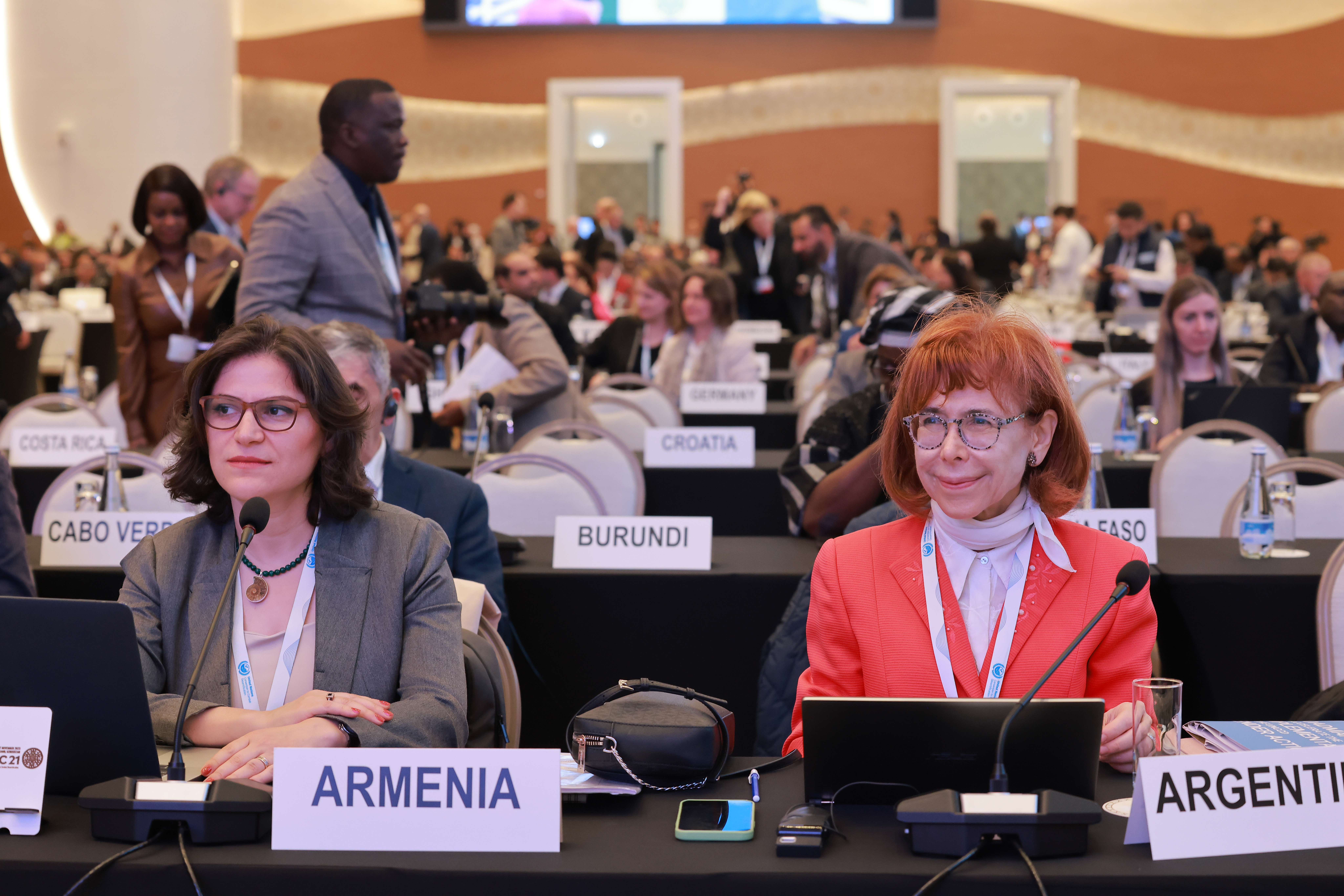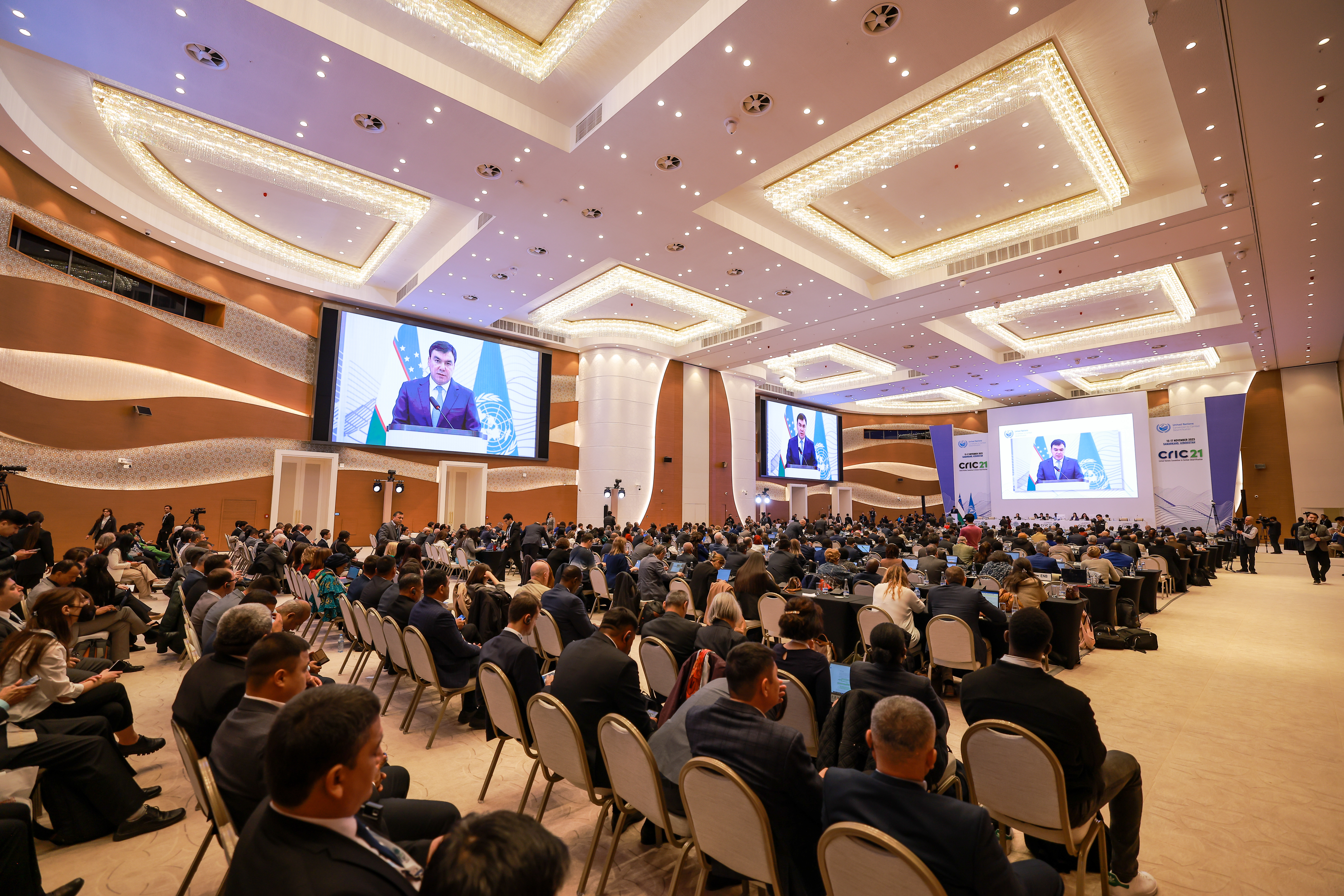
The 21st session of the Committee for the Review of the Implementation of the United Nations Convention to Combat Desertification (CRIC 21) is taking place from November 13 to 17, 2023, at the Silk Road Samarkand Congress Center.
CRIC 21 involves the participation of approximately 500 delegates from 196 countries and the European Union, representatives of civil society and scientific circles, who will analyze the progress in achieving the strategic goals of the Convention. For the first time since the signing of the UNCCD, one of its most significant meetings will be held in Central Asia.
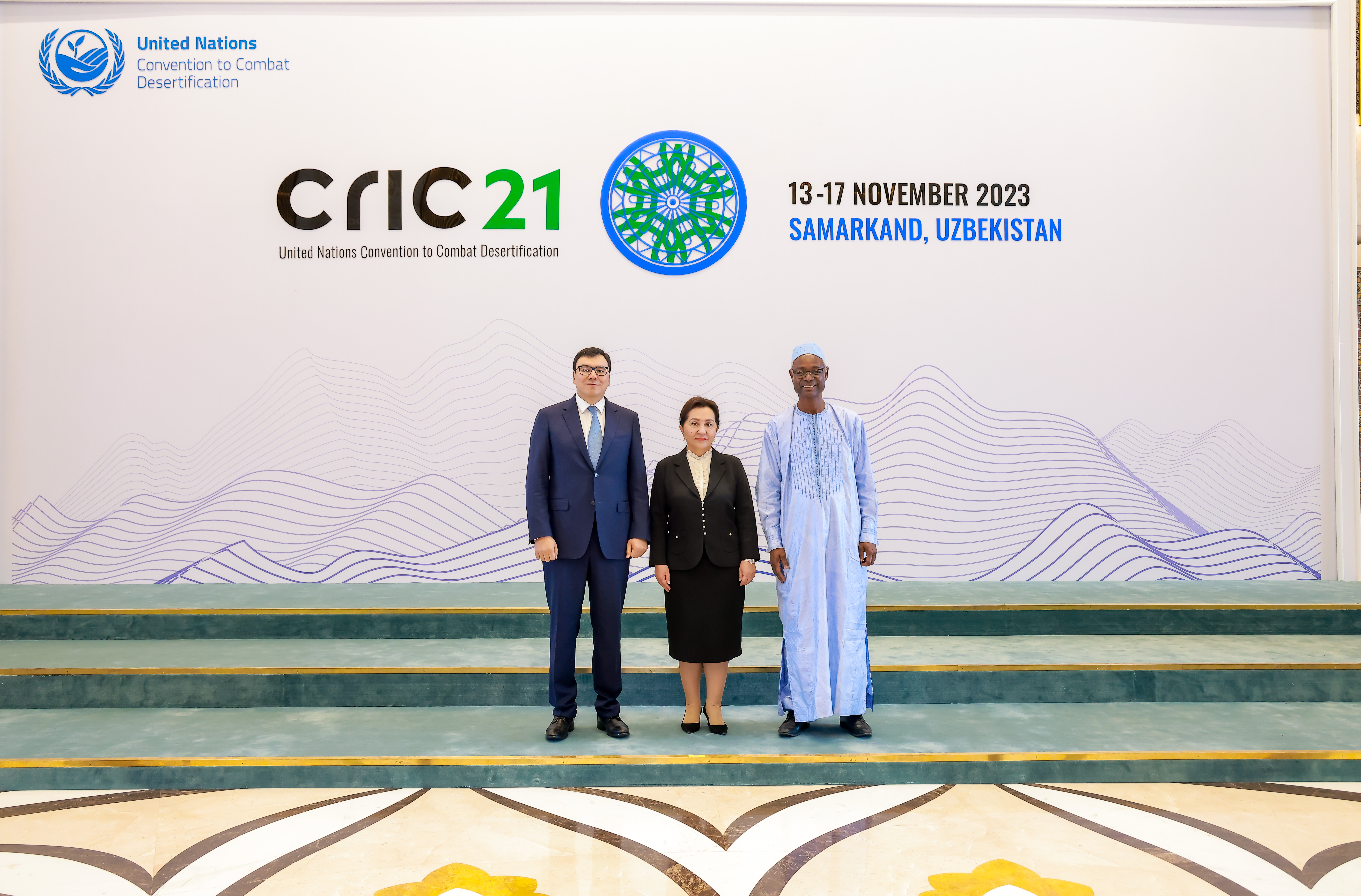
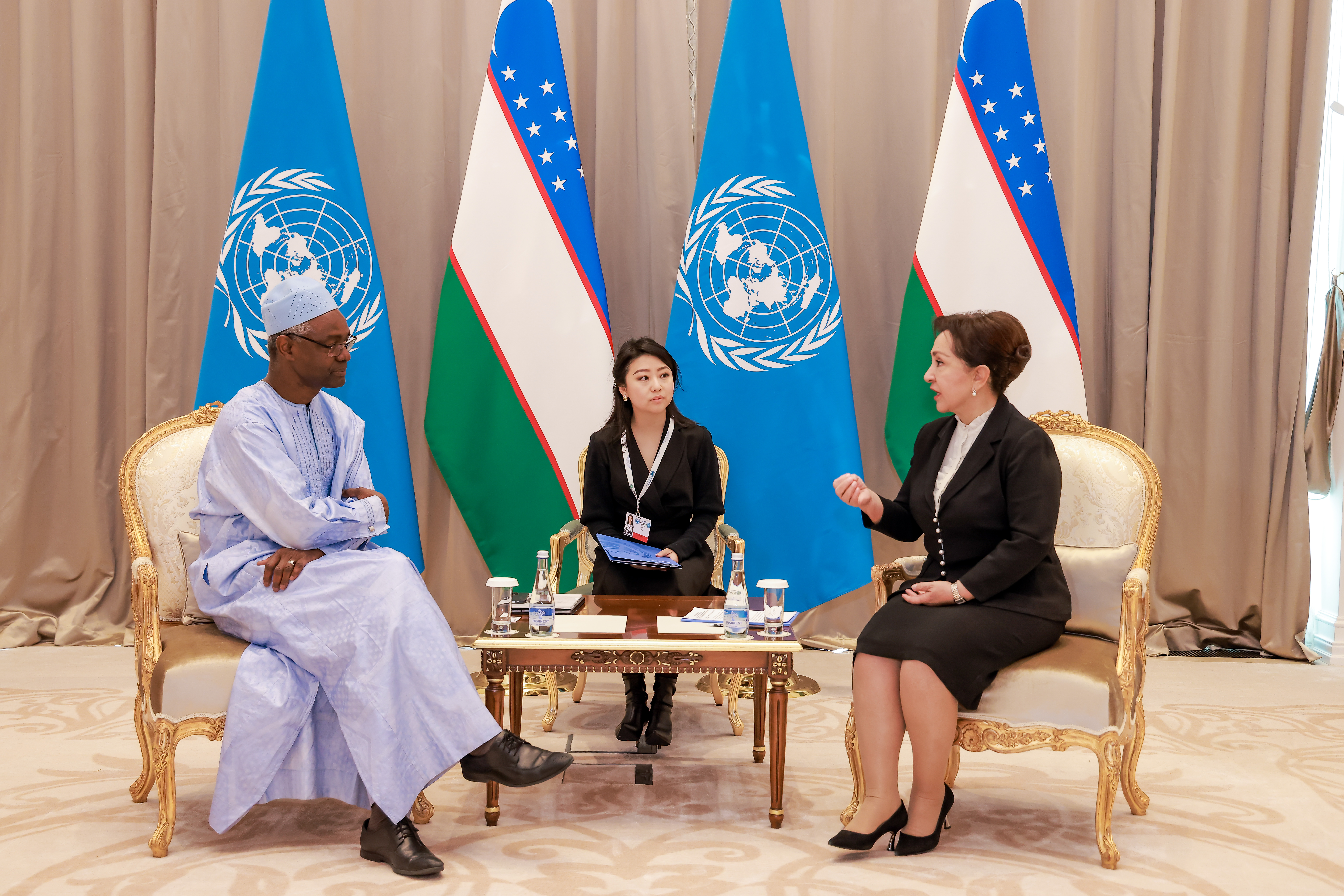
CRIC 21 parties will have the opportunity to discuss progress and provide recommendations for achieving global goals on preventing land degradation in accordance with the UNCCD Strategy for 2018-2030.
The opening of the event featured a welcome speech by the President of the Republic of Uzbekistan, Shavkat Mirziyoyev.
"The agenda of this high-level forum includes vital issues of joint action against the climate challenges of our time and the development of broad international cooperation in combating desertification. I would like to emphasize that Uzbekistan and the entire Central Asian region are particularly vulnerable to the negative impacts of climate change and fully experience the severe consequences of the resulting social and ecological problems.
Today, we are practically alone in combating the destructive consequences of the global catastrophe of the Aral Sea, which is disappearing before our eyes within one generation. All these threats and many other factors directly affect the well-being and health of not only our region's population but the entire world, requiring even greater consolidation and strengthening of partnerships to achieve the key Sustainable Development Goals.
I count on the resolute support of the international expert community for Uzbekistan's initiative to adopt the Samarkand Declaration on sand and dust storms at the conclusion of this session. I am confident that this multilateral document will be an important contribution to our joint efforts aimed at early warning and effective response to such serious environmental challenges. It will enable the expansion of scientific exchanges, initiation of new technical assistance programs, and concrete investment projects," stated Shavkat Mirziyoyev.
On the first day of the event, November 13, the first Plenary Session began, where opening statements were made by the Chairperson of CRIC 21, the Executive Secretary of the UNCCD, Mr. Ibrahim Thiaw, the Minister of Ecology, Environmental Protection, and Climate Change of the Republic of Uzbekistan, Mr. Aziz Abdukhakimov, and the Chairperson of the Senate of the Oliy Majlis of the Republic of Uzbekistan, Ms. Tanzilla Narbaeva.
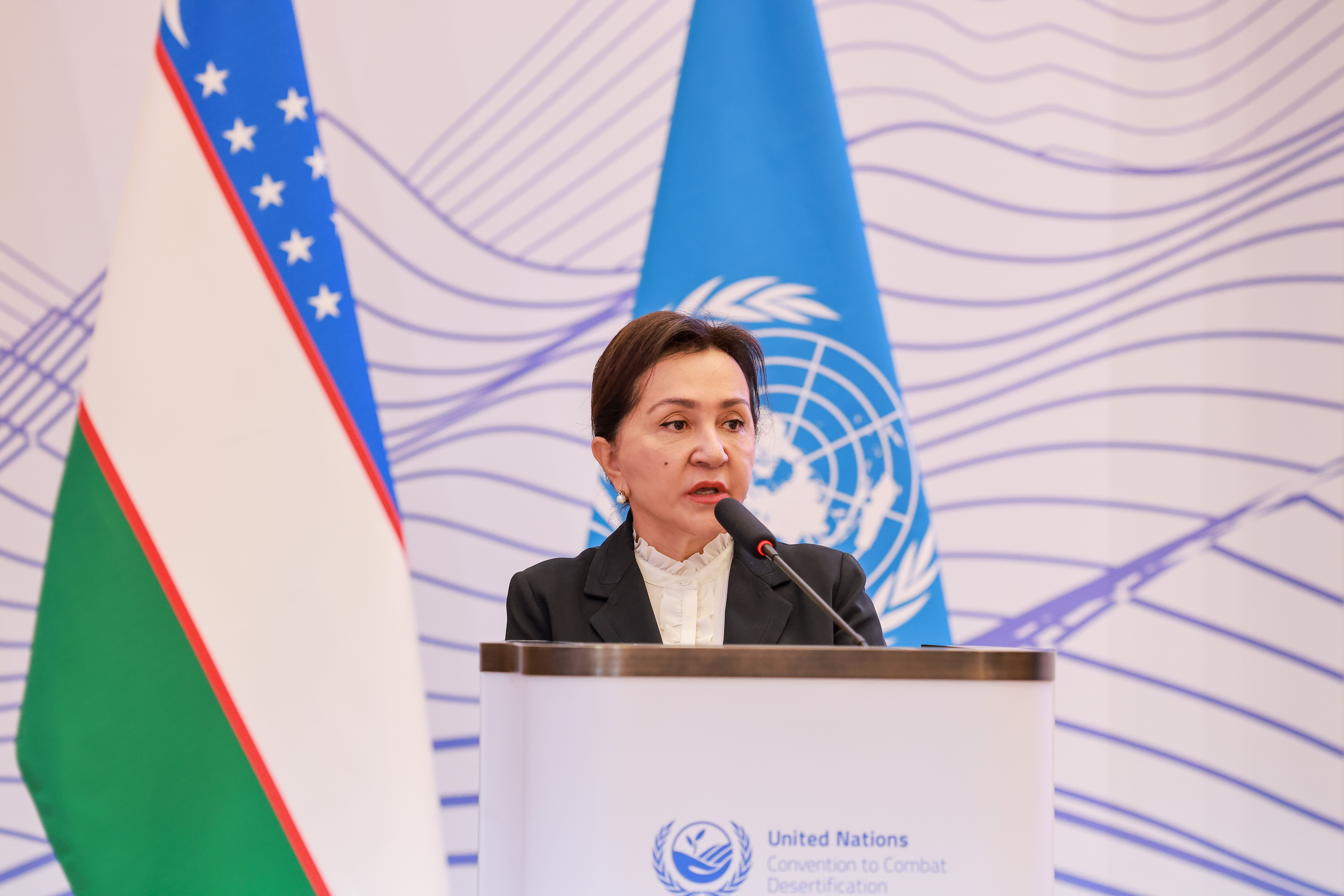
"Droughts, forest fires, and extreme heat that we observe worldwide are symptoms of climate and environmental crises that are worsening and interconnected. Since 2015, approximately 4 million square kilometers of healthy and productive land have been lost, an area roughly equivalent to the size of Central Asia. We urgently need to halt further land degradation and restore at least 1 billion hectares to achieve global land-related goals by 2030," said Mr. Ibrahim Thiaw, Executive Secretary of the UNCCD.
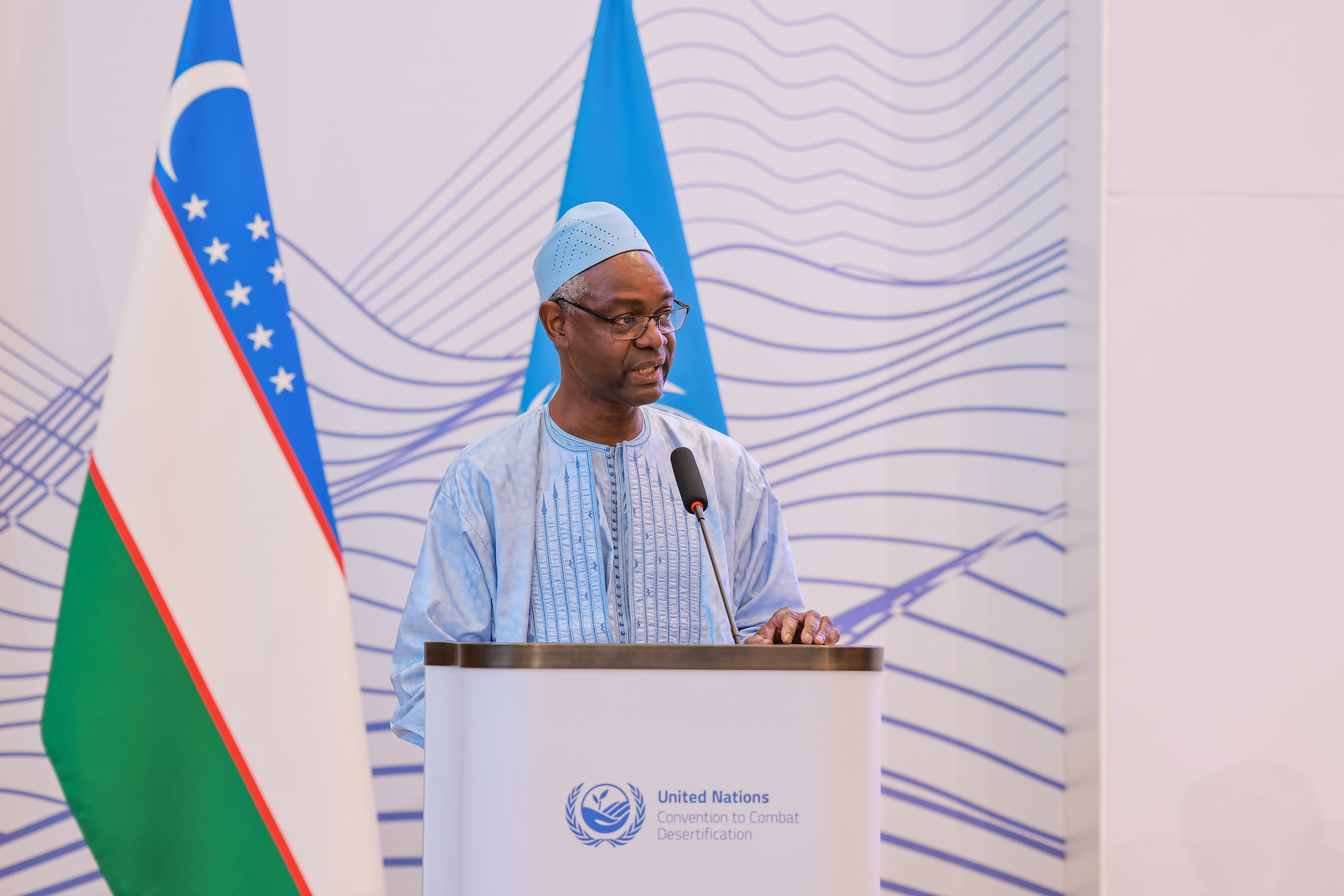
This meeting comes at a critical moment as the latest data presented by the UNCCD shows that annual losses of healthy and productive land worldwide amount to approximately 100 million hectares. With the current trends, to achieve a neutral balance of land degradation globally by 2030, 1.5 billion hectares will need to be restored.
"As the world grapples with the triple planetary crisis, reimagining our relationship with land is an urgent necessity. Preserving the health of our land must become a priority in our efforts to mitigate and adapt to climate change.CRIC 21 is not coincidentally taking place in Uzbekistan, as it serves as an example of one of the most vulnerable countries experiencing all the negative consequences of land degradation, from increased droughts, sand, and dust storms to the loss of agricultural productivity and biodiversity.Throughout centuries, Uzbeks have traditionally been engaged in agriculture, and thus, land has historically been considered a vital source of livelihood. Therefore, witnessing this important source of existence under serious threat raises concerns and signals the need for concrete actions.Despite the numerous challenges posed by climate change and human activities, we also view them as an opportunity to truly redefine our relationship with land and nature as a whole. I am pleased to report that the environmental and climate change agenda is one of the key strategic priorities of the Government of Uzbekistan. We aim to achieve land degradation neutrality and already see some initial results in this regard," explained Mr. Aziz Abdukhakimov.
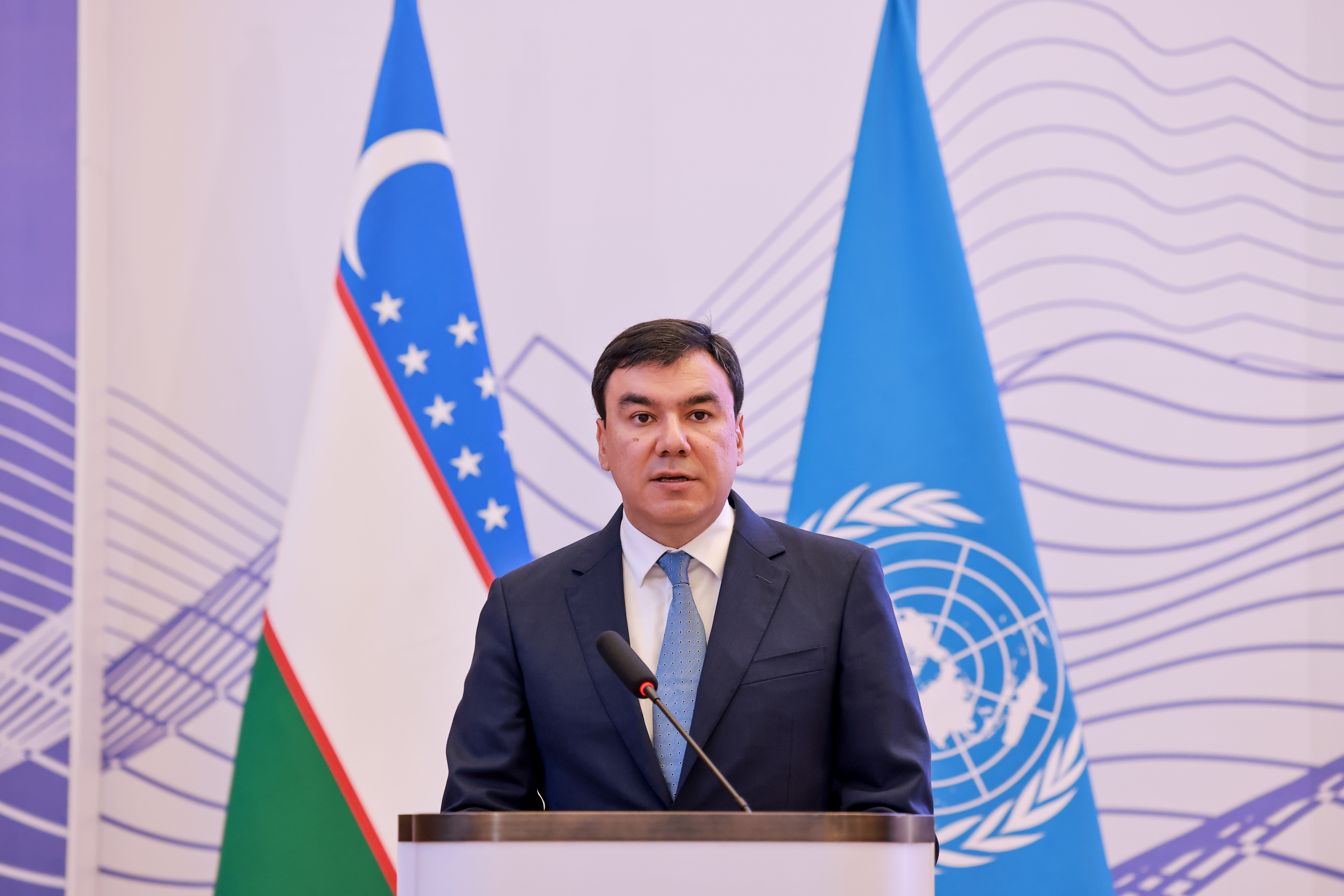
It is worth noting that the Republic of Uzbekistan was the first country in the Asian region and the CIS to ratify the United Nations Convention to Combat Desertification in 1995.
In 2023, the Republic is hosting the Committee for the Review of the Implementation of the UNCCD (CRIC 21) for the first time, with the organization being led by the Ministry of Ecology, Environmental Protection, and Climate Change of the Republic of Uzbekistan.
For reference: The United Nations Convention to Combat Desertification (UNCCD) was established to unite the efforts of the public and private sectors at the international level to combat desertification, land degradation, and mitigate the effects of drought. The Convention has 196 country parties and the European Union. It was adopted in Paris on June 17, 1994, as a result of the United Nations Conference on Environment and Development in Rio de Janeiro and entered into force on December 26, 1996. In 2012, the Convention was ratified by 195 countries.
